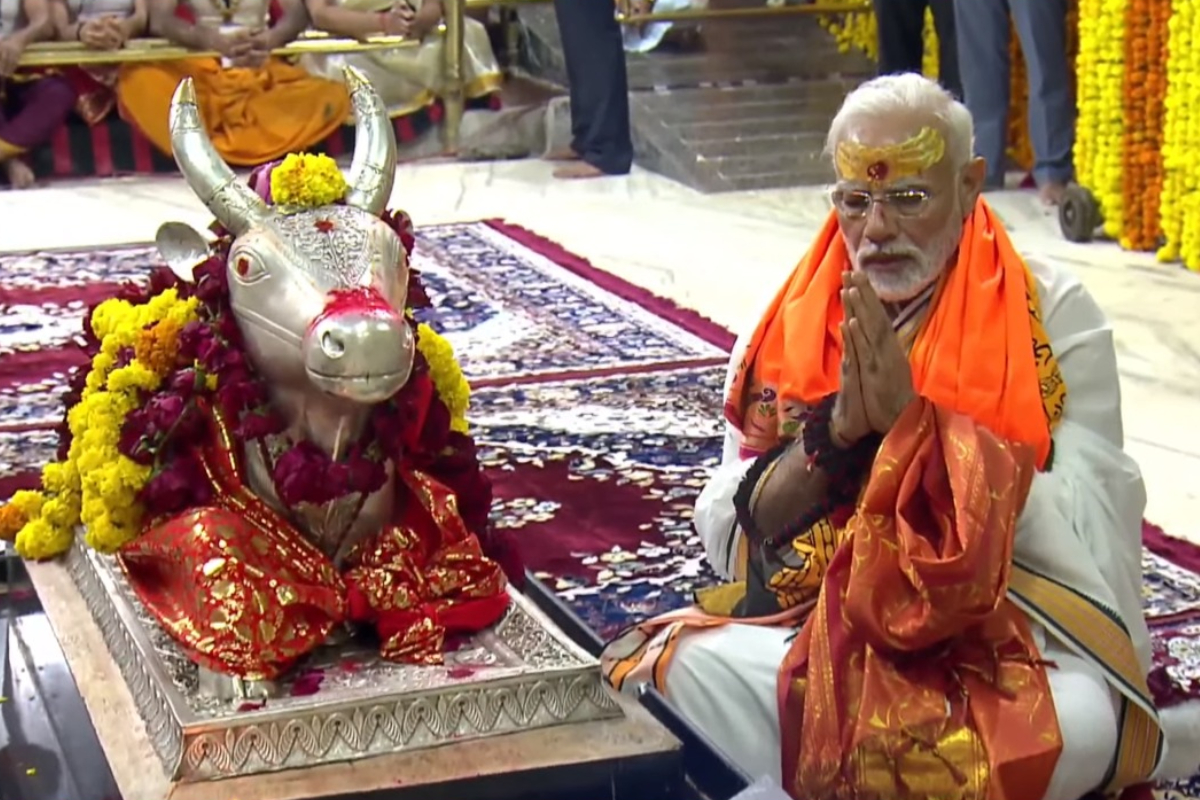Prime Minister Narendra Modi is currently immersed in an 11-day ‘anusthan’ (special ritual) ahead of the Pran Pratishtha of the Ram Mandir in Ayodhya, as per sources reported by India Today on Thursday. During this period, the Prime Minister has opted to sleep on the floor and sustain himself solely on coconut water, demonstrating a profound commitment to the religious observance.
The initiation of this ritual was announced by Prime Minister Modi on January 12, emphasizing the historic and auspicious nature of the Pran Pratishtha occasion. He expressed his sense of privilege in being part of this significant event and noted that he views himself as an instrument chosen by God to represent all Indians during the Pran Pratishtha exercise. The 11-day religious observance, he mentioned, is a conscious effort aligned with this divine purpose.
Officials have disclosed that Prime Minister Modi will strictly adhere to ‘Yam Niyam’ during these 11 days. ‘Yam Niyam’ encompasses several austere measures, such as yoga, meditation, and discipline in various aspects, as outlined in scriptures. It is noteworthy that the Prime Minister already incorporates many of these disciplines into his daily life, including waking up before sunrise, practicing meditation, and adhering to a ‘satvik’ diet.
In addition to these practices, the Prime Minister has chosen to observe a fast with strict penance throughout the 11-day period. This decision underscores the deep commitment to spiritual discipline and signifies a personal sacrifice as part of the consecration process.
The term “Pran Pratishtha” refers to the manifestation of divine consciousness in the idol of the deity. The scriptures provide specific guidelines for the rules of fasting that should precede the consecration. Prime Minister Modi’s decision to observe a fast aligns with these traditional practices, emphasizing the significance of this religious event.
The Prime Minister’s dedication to this religious observance is not only a personal choice but also a reflection of his commitment to spiritual values. By embracing austere measures and observing traditional practices, he sets an example that resonates with the cultural and religious sentiments of many Indians. The 11-day ‘anusthan’ is not just a ritual for the Prime Minister; it symbolizes a profound connection to the divine and a deep sense of responsibility as a representative of the people during this sacred event.
